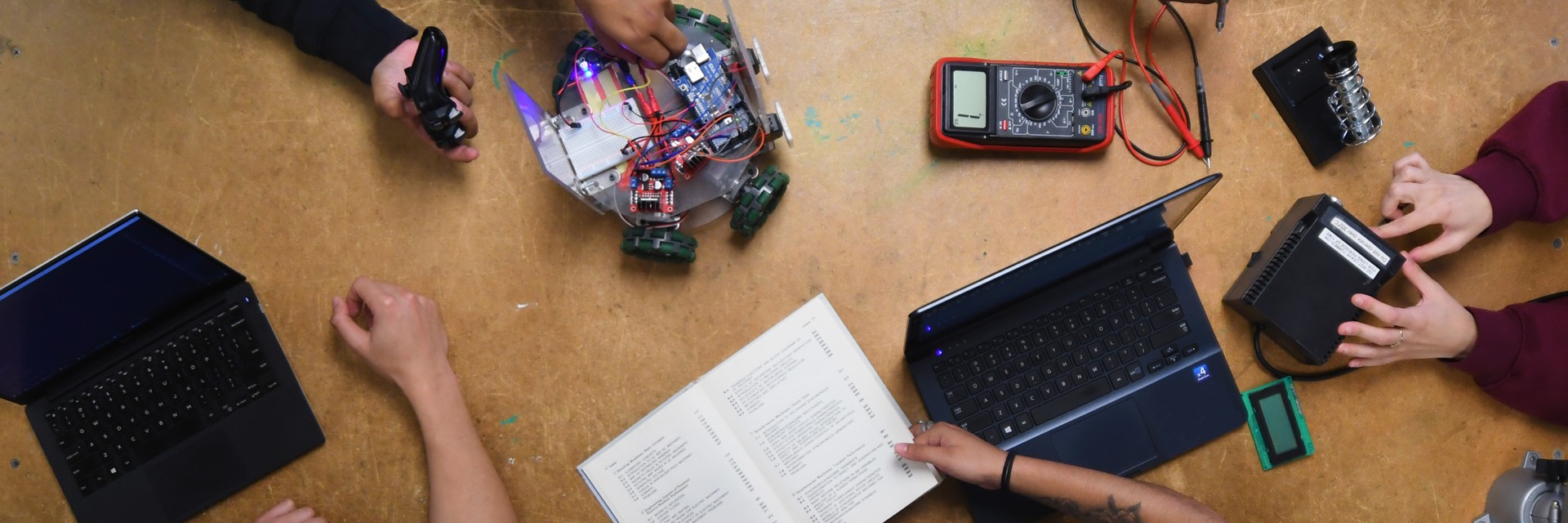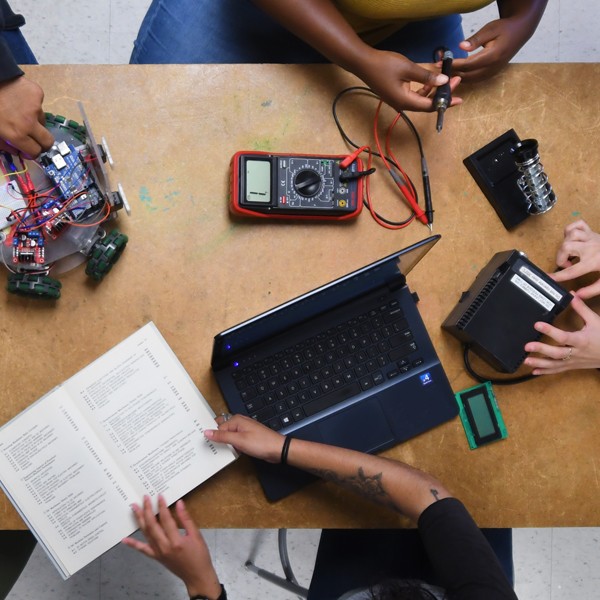Objectives
Knowledge
- an ability to apply knowledge of mathematics, science, and engineering (abet a)
- In particular, an ability to apply knowledge of: chemistry and calculus-based physics.
- advanced mathematics through multivariate calculus and differential equation
- statistics and linear algebra
- an understanding of professional and ethical responsibility (abet f)
- the broad education necessary to understand the impact of engineering solutions in a global, economic, environmental, and societal context (abet h)
- knowledge of current events and societal contemporary issues -- non-engineering related. (abet j)
- a knowledge of computer aided design and simulation software
- a knowledge of measurement and manufacturing techniques
- an ability to apply common sense
Skills
- an ability to design and conduct experiments as well as to analyze and interpret data (abet b)
- ability to design a system, component, or process to meet desired needs within realistic constraints such as economic, environmental, social, political, ethical, health and safety, manufacturability, and sustainability (abet c)
- an ability to function on multidisciplinary teams (abet d)
- an ability to communicate effectively (abet g)
- an ability to use the techniques, skills, and modern engineering tools necessary for engineering practice (abet k)
- an ability to visualize designs from engineering drawings
- an ability to identify, formulate, and solve engineering problems (abet e)
- an ability to think in a logical, sequential, holistic process
Attitudes
- an understanding of professional and ethical responsibility (abet f)
- a recognition of the need for an ability to engage in lifelong learning (abet i)
- an understanding of responsibility and accountability
- a desire to be a professional that exhibits values, dedication and a need for continual improvement
- a desire to have critical thinking and organizational skills

